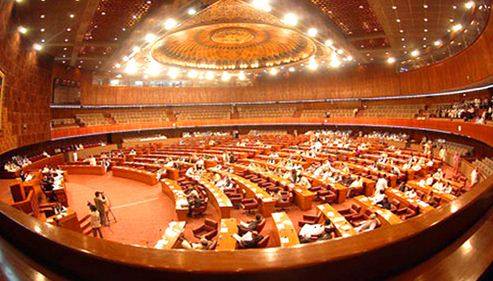Digital Rights Foundation and Bolo Bhi held a consultation today on the Prevention of Electronic Crimes Bill 2015, on the day that it was set to be discussed by the Pakistani Senate, in Islamabad.
Legislation that protects citizens from cybercrime and terrorism is needed more than ever, provided that a fair and progressive balance is struck between security and liberty. The Prevention of Electronic Crimes Bill does not meet that balance - rather than protect the rights of Pakistani citizens as its authors and supporters claim, its passage will in effect criminalise freedom of expression, and put the privacy of Pakistani citizens at risk.
The aim of the consultation was to provide Senators, parliamentarians, members of civil society organisations and the media with the context of the process behind the PECB, and to discuss the problematic provisions and amendments that have been suggested in the most recent versions. Senators and Members of the National Assembly gave their thoughts on the process, and expressed their concerns and opinions on how the Senate would treat the PECB when it would be debated in the Senate. Senators Farhatullah Barbar (Khyber Pakhtunwa-PPP), Shahi Syed (KP-ANP), Chairman of the Senate Standing Committee on Information Technology and Information, and Rubina Khalid (KP-PPP), also a member of the Senate Standing Committee on IT, participated in the discussions on the PECB, as did other lawmakers.
Senator Farhatullah Barbar reiterated that the PECB should be subject to a true public hearing, to allow for experts in IT and law to discuss and examine the Bill. Senator Barbar also stressed that proper public oversight is necessary, as is a strong balance between security and civil liberties.
Senator Rubina Khalid expressed the concern that the language of the PECB as it currently exists would be used for not just political victimisation, but religious victimisation. Senator Khalid also recounted how the PML-N government had taken advantage of the National Assembly walkout by the PPP in order to push through the PECB. Senators Khalid and Babar also stressed that the PPP has a clear stance that they will not pass the Bill in its current form, and that the Bill was in such a state that it did not deserve to be amended, but to be rebuilt from the ground up, with proper input from multi-stakeholders.
Senator Shahi Syed said that the Senate would not pass the PECB in its current form, and that a public hearing on the Bill would be organised, to allow the public to take part in the process.
Raza Ali Abdi (MQM) echoed these sentiments, saying that all efforts to push for change in the National Assembly by MQM have been exhausted, and now the responsibility lies with the Senate to scrap the PECB and start over.
All lawmakers present at the consultation agreed that rather than one faulty bill like the PECB, separate coherent and thought-out bills are required that focus on cybersecurity, cybercrime and cyberterrorism independently. It was also agreed upon that the development and implementation of strong privacy protection mechanisms – to protect Pakistani citizens, their privacy and freedom of expression – was urgently required. Iqbal Khattak, a journalist and member of Reporters San Frontieres (Reporters With Borders) echoed this statement, criticising the current lack of legal protections of legal protections regarding personal data, if said data is handed over to the authorities for any reason.
Saroop Ijaz of Human Rights Watch agreed, making the important point that to date the PECB has been framed in the context of security – when we look at the Bill, its failings regarding privacy and human rights must be flagged and urgently discussed.
Participants agreed that while comprehensive and well-researched cybercrime legislation is required, the PECB is not that legislation, not as it currently exists. The Bill needs to be redrafted from scratch, subject to a public hearing, and then legislation that truly reflects the concerns and input of multiple civil society stakeholders can be crafted that protects the citizens of Pakistan, but not at the cost of their privacy and freedom of expression. Digital Rights Foundation hopes that the Senate fulfils the commitments that they had made today, to ensure that any future cyber crime legislation reflects these concerns, and will working with Senators to ensure that this is the case






